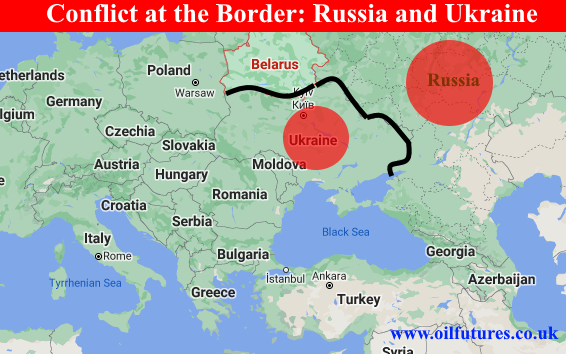Crude oil prices have reached 7-year high with Brent
approaching $90 a barrel, if the current momentum of the upward trend remains this way.
As of 10:00 GMT, the price of WTI and Brent stood at
$86.52 and $87.73 respectively.
The rising energy prices and the inevitable inflation that stems from the former have already left the Western political
leaders in a costly political lurch.
The IEA, International Energy Agency, which
discouraged the future investment in fossil fuels on a grand scale last year, now
implies that the oil producers need to take some responsibility for the current
energy crisis; for instance, according to the IEA, the OPEC+ added just 60% of
what it planned to do – last month.
The producers, while not denying that is the case,
blame the failure on the lack of investment, among a few more grievances.
The rising energy prices have cast an ominous global
shadow, hampering the progress of many economies in the world that try to come
out of the economic shock suffered by the pandemic; the impact has reached the
core of the countries in question, both major and modest in size.
In the United Kingdom, for instance, the companies
are up in arms against the rising cost of running various sectors; the
consumers, on the other hand, feel the pinch when they do their shopping and the retail chains worry that the fall of sales is inevitable.
The rising cost of living has clearly eclipsed the relatively
good news on the pandemic front.
The tension at the border between Russia and
Ukraine, meanwhile, has added yet another dimension to the existing crisis. Any
military move by Russia that borders an invasion will trigger off a chain of
events that directly affect the energy markets; such a move can make it many
times worse that it is now, because Russia is a key player in the energy
markets.
In a major political twist, meanwhile, the refusal by Germany for the flights from the
United Kingdom over the airspace of the former, carrying anti-tank missiles for
the Ukrainian army, shows the inability of the West to act as a united front.
When things hot up, military analysts fear, more
cracks may appear in the Western alliance against Russia, especially if the US
takes up a more passive option.
In this context, President Biden's latest statement in a press briefing on Wednesday, saying that Russia could get away with what he called, ' a minor incursion' has already ruffled a few feathers in the Western Capitals: his position coincides with the latest statement by Jens Stoletenberg, the Secretary General of the Nato, who somewhat relaxed hits rigid stance against Russia, when it comes to the eastward expansion of the military alliance.
In another development, President Biden showed some optimism in reviving the JCPOA, 2015 Iraninan nuclear deal in yesterday's press briefing too; perhaps, the US must be contemplating about letting Iran be a major partner in exporting oil - as a last resort, when none of the other options produces the desired effect.








